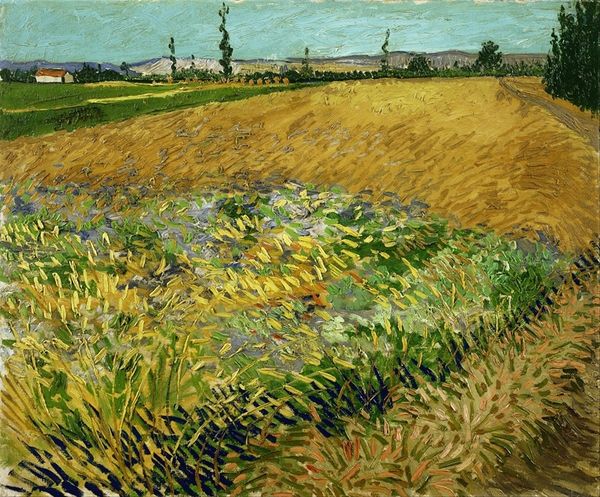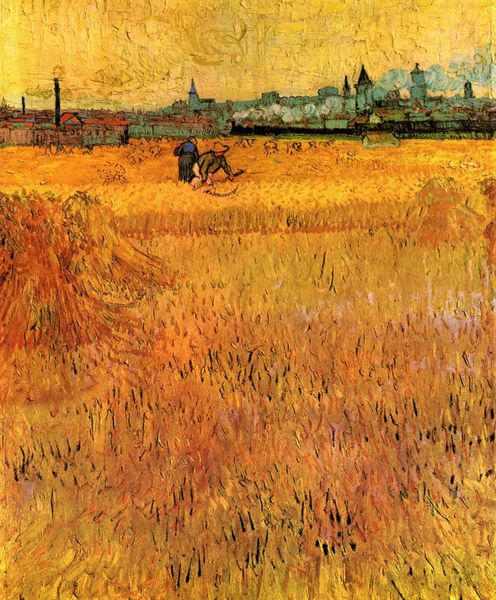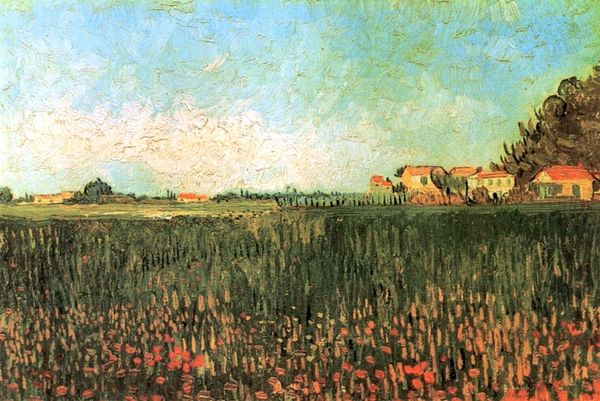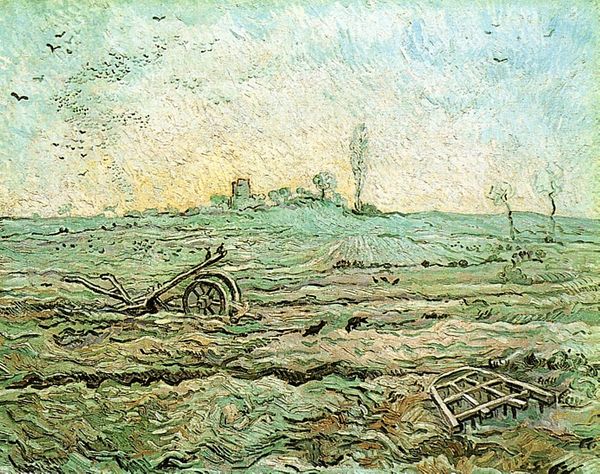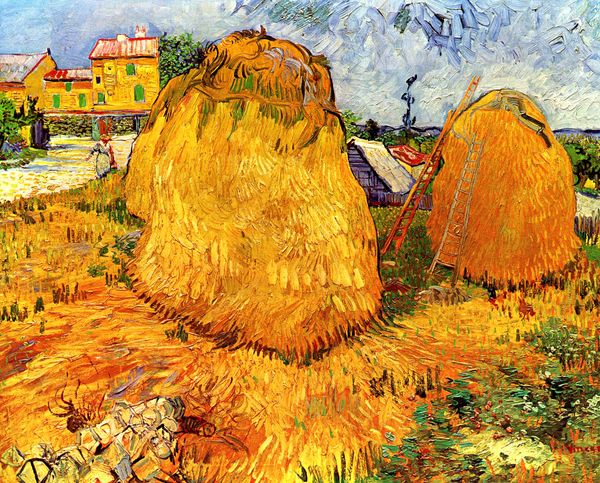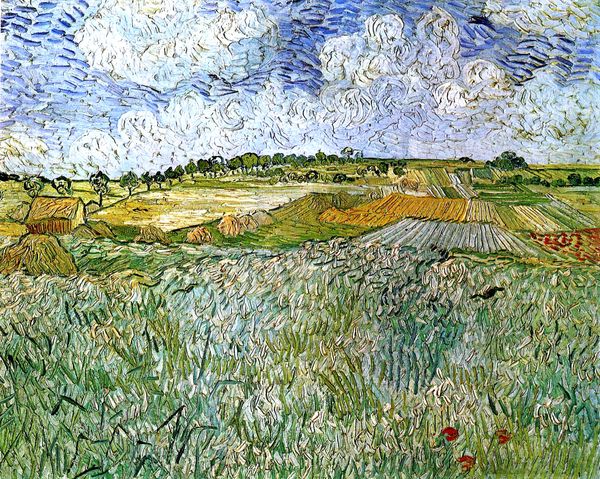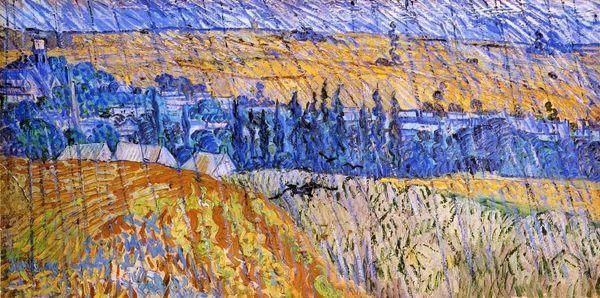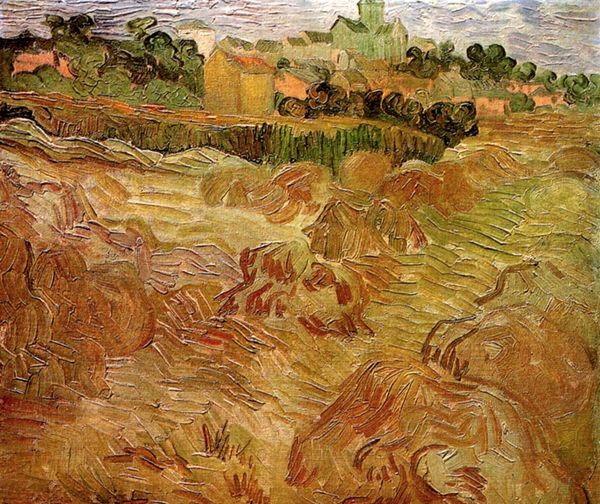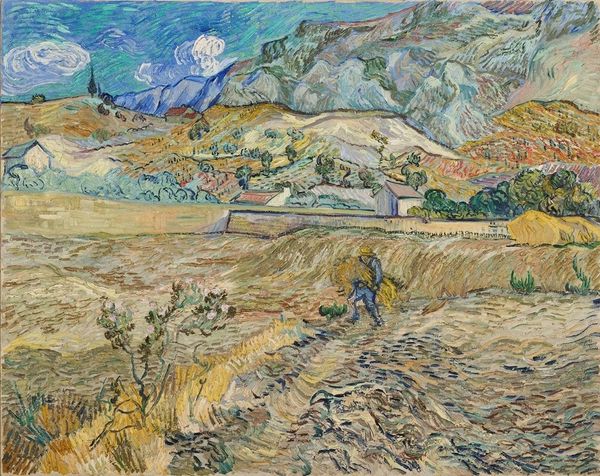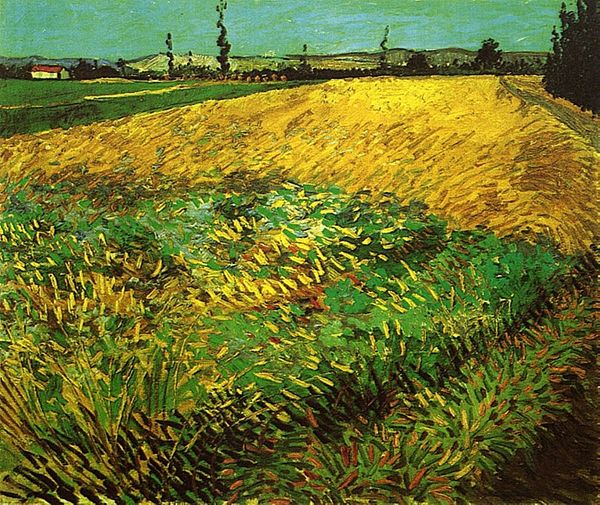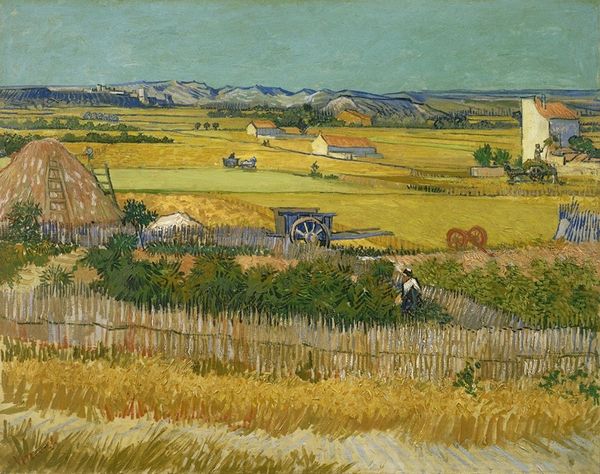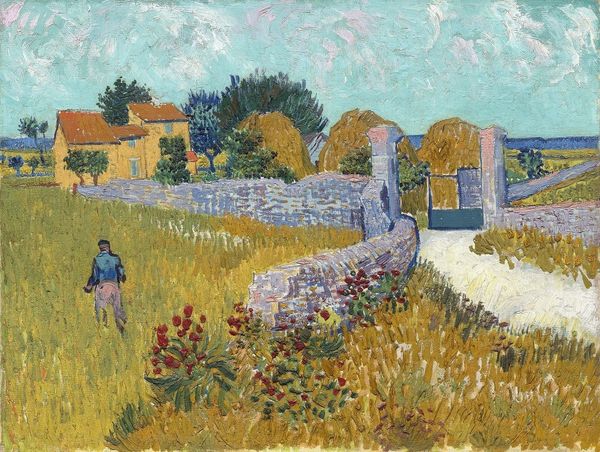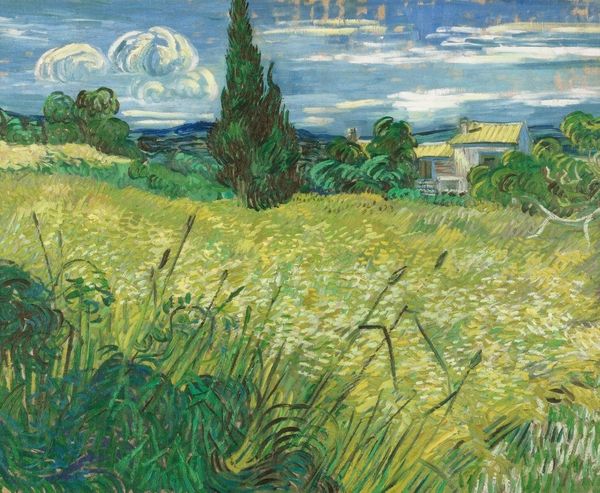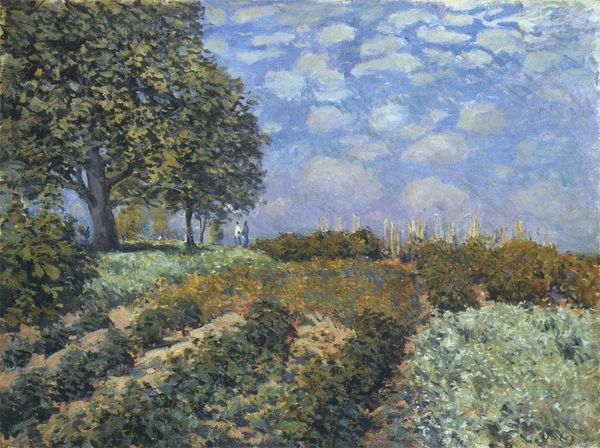
painting, plein-air, oil-paint, impasto
#
garden
#
sky
#
painting
#
impressionism
#
impressionist painting style
#
plein-air
#
oil-paint
#
landscape
#
impressionist landscape
#
oil painting
#
impasto
#
geometric
#
post-impressionism
Dimensions: 96 x 120 cm
Copyright: Public domain
Editor: This is Van Gogh’s "Vegetable Gardens in Montmartre" from 1887, currently at the Stedelijk Museum in Amsterdam. It's painted with such thick brushstrokes; you can almost feel the texture. It seems to depict a very humble scene of ordinary gardens... what catches your eye most about it? Curator: I’m drawn to how this image reflects the changing urban landscape of Paris in the late 19th century. Montmartre was transitioning from a rural village to an integrated part of the expanding city. The windmills, a classic Dutch subject, here signal industry. The scene sits above modest gardens, small-scale agricultural production juxtaposed with encroaching urban development. Editor: So, the painting is speaking to the modernization of Paris and the push and pull between rural and urban life? Curator: Exactly. Consider the context: this painting was created during a period of intense urban renewal in Paris. What do you think Van Gogh, as a newly arrived artist, was trying to convey by focusing on these vegetable gardens in the face of modernization? Editor: Maybe he wanted to depict something beyond the fashionable highlights, documenting how real people lived and worked? I see also how elevated the garden looks... as if a statement of how food production is foundational to urban living. Curator: Precisely. And consider that the image flattens the composition. How do you think that flattening emphasizes that relationship between industrializing city and working landscape? Editor: That's a great point! It compresses the space and makes the contrast appear more vibrant. I initially thought it was simply a garden landscape. Now I see Van Gogh may be presenting a commentary on industrial growth. Curator: Seeing the painting within this socio-political framework enhances our understanding, wouldn't you agree? Editor: Definitely. It's incredible how much historical context can shift the reading of a work. Thank you!
Comments
No comments
Be the first to comment and join the conversation on the ultimate creative platform.
